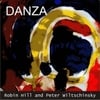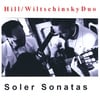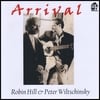An artists perception of their performance can be a strange thing.
I had a message from Robin after the first of his guitar concerts yesterday on board the QM2.
He was very pleased with how it had gone, but, wasn't sure how the audience felt.
In my 15 years as the, 'wife of a musician', I have frequently been surprised by such comments.
For many of those years, I travelled with Robin, either when performing as a soloist, or, with the Hill/Wiltschinsky Guitar Duo.
Usually I would sit in amongst the audience, and enjoy the concert, and even more, enjoy the applause at the end.
I would then be very surprised when I went back stage to find the duo, quite sure in their minds, that the audience hadn't enjoyed it.
I would be incredulous, as I had heard the comments, and the applause with my own ears.
I think there are a few factors at play here.
One, is that often the artist on stage, doesn't always have a clear view of the audience, as the stage lights are so bright.
This can make the whole scenario seem rather strange.
You can hear that the audience are there, and maybe see some of them, but unless you have sneaked a look prior to going on stage, or been told, (usually by me), then it's difficult to assess once you've taken up your position.
Also the acoustics play a part.
Often the whole point of the positioning of the stage, and amplification if used, is for the audience to hear well.
The artist may have a monitor to hear themselves, but, not to hear the audience.
Some venues therefore have a strange acoustic, which doesn't always let the artist hear the audiences reaction, in the same way that the audience themselves hear it.
There is, of course, also the psychological factor to account for.
It's a lonely place up on stage, and if the other two points I've made occur, then it will colour any artists perception of their own performance.
Luckily, Robin knows all this, and generally, it isn't a problem.
Nor was it a problem yesterday. He merely mentioned being unable to 'read' the audience.
My return message suggested he wait and see if there is any feedback.
There was.
The audience obviously loved it, as every time Robin has left his room since the concert, he has been stopped by a passenger, and told how much they enjoyed it.
Also, the Cruise Director must have been happy, as he has asked Robin to do a 'special' slot for some VIPs.
Luckily Robin isn't adversely affected by these issues now.
He understands the factors at play, when on stage, giving a concert.
But this takes experience.
Musicians are highly critical of themselves, because they feel so passionate about their work, and I feel it is experience that is required to gain the confidence needed to overcome these aspects of performing.
Reviews
'As always, it was sheer pleasure to observe Robin Hill's remarkable fluent technique: everything looks easy when he plays it.' Colin Cooper- Classical Guitar Magazine -----
'Wonderful for their (Hill & Wiltschinsky) precision, touch and clarity of sound... refined virtuosity, the achievement of a long interpretive process.' Il Giornale D'Italia (Rome) -----
'I loved your CD and thought your technique and performance were fabulous...' Rick Wakeman
Subscribe to:
Post Comments (Atom)


















2 comments:
I guess for instrumentalists it must be a little bit easier than opera singers, as between each piece in your recital you can gauge how the audience is receiving it through their applause. I've been involved in the orchestra for an opera at uni, and it must be very hard for the singers to know how the audience is taking it, as they only applaud at the end of each act, which can be 45 minutes or more. Tough stuff!
Yes, very true.
45 minutes is a long time to wait and find out if the audience are enjoying it!
I suppose that whether you are a singer, or an instrumentalist, you will be giving it all you have anyway.
But, the reactions from an audience can help fuel the performance, which results in an even more exciting concert.
Post a Comment